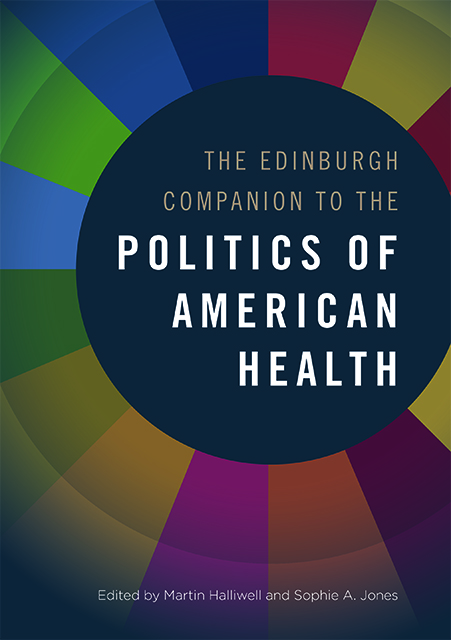Book contents
- Frontmatter
- List of Contents
- Notes on Contributors
- Introduction: The Political Landscapes of American Health, 1945–2020
- I Geography, Community and American Health
- II Critical Health Conditions: Debates and Histories
- III The Politics of Children's Health
- IV The Institutional Matrix of Health Care
- V The White House, Congress and Health Reform
- VI Justice, Ethics and American Health
- VII Public Health and Global Health
- General Bibliography
- Index
12 - Autism and the Anti-Vaccine Movement
Published online by Cambridge University Press: 12 August 2023
- Frontmatter
- List of Contents
- Notes on Contributors
- Introduction: The Political Landscapes of American Health, 1945–2020
- I Geography, Community and American Health
- II Critical Health Conditions: Debates and Histories
- III The Politics of Children's Health
- IV The Institutional Matrix of Health Care
- V The White House, Congress and Health Reform
- VI Justice, Ethics and American Health
- VII Public Health and Global Health
- General Bibliography
- Index
Summary
The anti-vaccine movement in the United States has continued to be influential despite the scientific establishment's strong rejection of its claims. The purported link between vaccines and autism, in particular, continues to capture public attention even after sustained efforts to discredit misinformation about vaccines and their causal link to autism. Public health professionals have responded to vaccine conspiracy theories by engaging in a battle over the objective truth about vaccine safety and launching an offensive against the fake assertions.
In recent years, this war over misinformation has grown into an urgent public health problem as epidemiologists have measured a concurrent decline in the rate of childhood vaccination. The problem, recently coined as ‘vaccine hesitancy’, is studied like other public health issues with sustained efforts to measure incidence, identify precipitating factors, and develop best practices to respond to reluctant patients. These efforts are devoted to launching an improved public health intervention in which better professional training will arm those on the front lines with approaches to inform and convince. While professionals often advocate for more effective use of softer appeals, state legislatures are debating controversial efforts to mandate childhood vaccinations by eliminating exceptions and other loopholes. Despite the high investment in these endeavours, the public health approach is at a crossroads: it has failed to get a handle on interventions that might work, while their evidence suggests that mandates might backfire and undermine public health advocacy.
Efforts to counter the anti-vaccination movement are also heading on a collision course with a mode of cultural politics that has polarized views about expert authority. This has become increasingly evident as public health authorities in 2020–21 were called upon by the federal government to respond to the Covid-19 pandemic. The credibility of public health evidence and whether its proscriptions serve society's best interests have been challenged by those who question whether the threat of the pandemic is real. In the wake of these controversies, the public health system in the United States may be facing a deepening legitimacy crisis and becoming increasingly ineffective in convincing citizens to act in the interest of protecting our common vulnerabilities. This comes as public acceptance of vaccines is essential to mounting an effective response to mitigating the spread of Covid-19.
This is an important moment to rethink how concerns about autism are linked to the anti-vaccination movement.
- Type
- Chapter
- Information
- The Edinburgh Companion to the Politics of American Health , pp. 204 - 219Publisher: Edinburgh University PressPrint publication year: 2022



